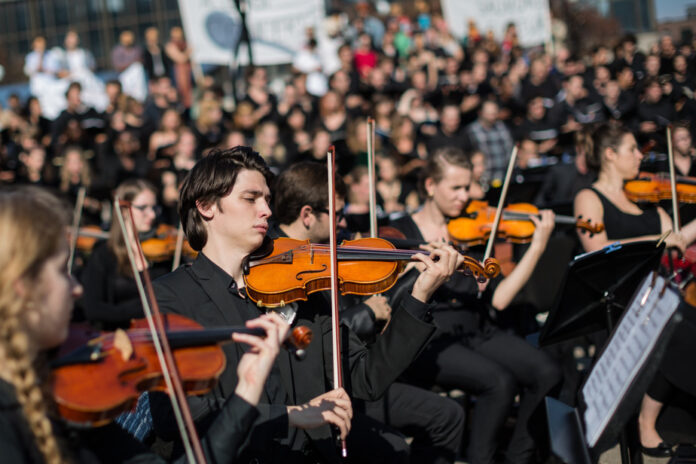The 230 professors working in the 7 music conservatories and the 2 drama conservatories in Quebec play an irreplaceable role in our cultural life.
In music, they form the majority of the members of our orchestras and ensembles, not to mention the soloists and chamber musicians who promote our culture both here and abroad.
In drama, the world of theatre, cinema and television would be deserted without the artists who make us think, laugh and cry, and who received exceptional training at the Conservatoire, this establishment newly directed by Marc Hervieux.
Despite this, the negotiation of the collective agreement binding these professors to the corporation of the Conservatory is at an impasse, essentially about the salary question. Indeed, as absurd as it may seem, while these high-level professors in many cases award bachelor’s and master’s degrees, it seems impossible for them to obtain the equivalent of the salary scale of professors in the public college sector. for all the years of the collective agreement, which represents a minimum. They are only granted this parity from the third year of the convention, i.e. from 2022, which is not acceptable for artists who have suffered professionally from the pandemic of the 2020s and 2021s.
It seems that the current stalemate has its origin less from the Conservatoire itself than from the Secretariat of the Conseil du trésor, this all-powerful ministry which oversees and firmly holds the purse strings of all the ministries and organizations public.
Mr. Hervieux, whose arrival at the head of the establishment was welcomed by the Conservatory community, managed to get additional money from the State to bring in new students, which he must greet. It seems, however, that the Treasury Board is not convinced of the need to reward those who will teach these future students commensurate with their competence and merit. Teachers working in the arts should not be considered less important than other teachers.
What the professors of the Conservatory are demanding today represents a just and equitable cause, and they will not give up on what constitutes a minimum recognition of this cutting-edge artistic expertise that they will continue to pass on to future generations.


















